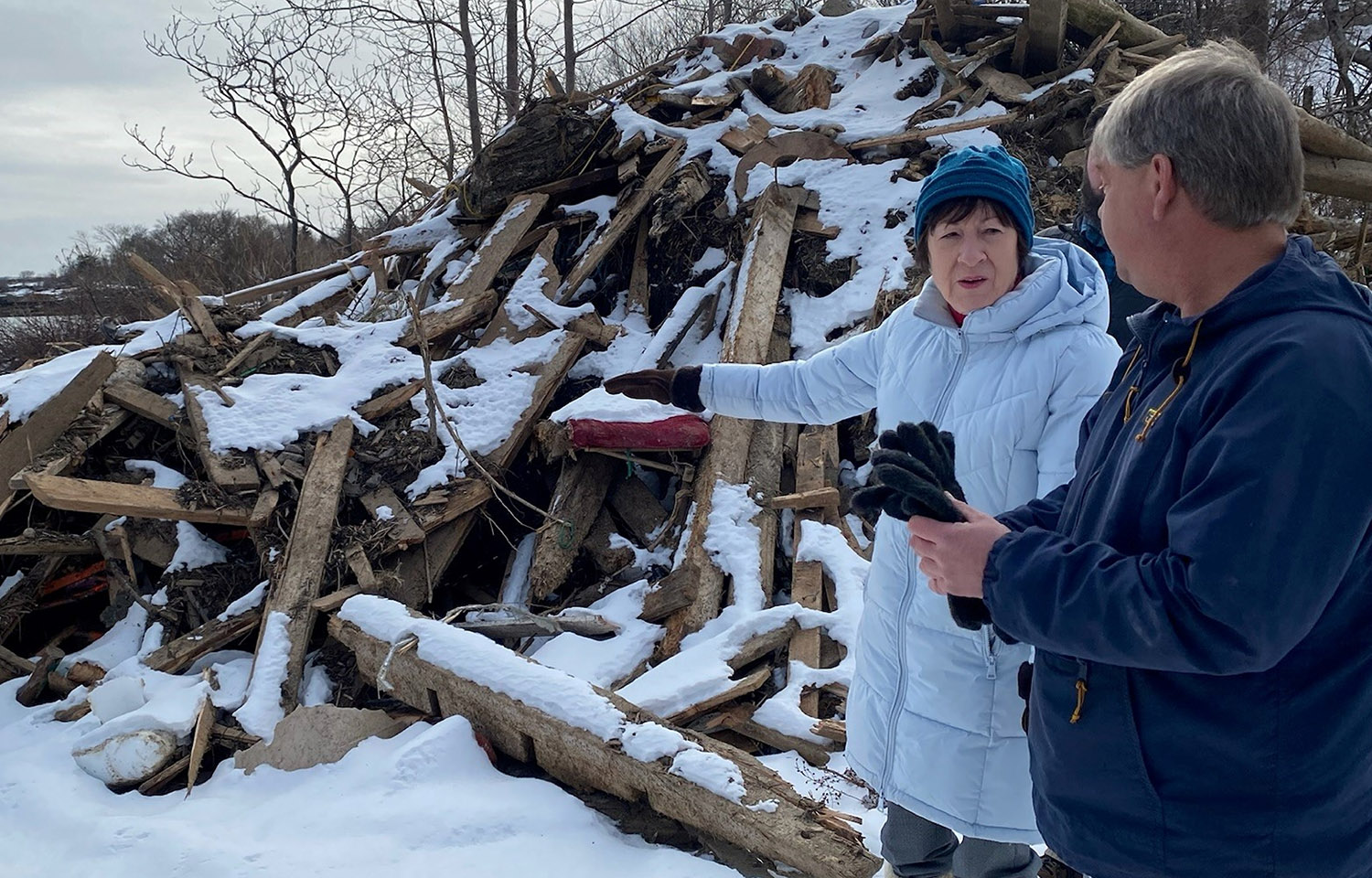Fishermen and government officials in the northeastern U.S. region of New England are surveying the damage caused by a pair of massive storms that hit the region in early January.
The first storm hit on 10 January, bringing precipitation totaling nearly 3 feet that sunk vessels, damaged docks, and flooded coastal communities. As New England began picking up the pieces, a second storm hit on 13 January with a record-breaking high tide and vicious winds topping out at over 50 miles an hour, which exacerbated the damage.
On 20 January, U.S. Senator Susan Collins (R-Maine) joined representatives of the New England Fishermen’s Stewardship Association (NEFSA) and the Maine Coast Fishermen’s Association (MCFA) to survey the damage.
“It was so important to view firsthand the destruction that was left behind in the wake of recent storms,” Collins said. “From longstanding local businesses, to private properties, to public waterfronts, these storms have negatively impacted so many in our state. As vice chair of the Senate Appropriations Committee, I am committed to working with federal agencies and our state officials to ensure that support for rebuilding can be promptly delivered to as many of those affected as possible.”
“We’re grateful to Senator Collins for coming to Harpswell, [Maine,] to debrief on this serious situation,” NEFSA CEO Jerry Leeman said. “The senator is committed to ensuring prompt delivery of disaster relief. We need and appreciate her advocacy.”
“Our community is resilient,” Leeman said. “We’ll get back up. We always do.”
NEFSA said in a statement “fishing communities badly need expedited federal disaster relief to recover.”
Maine Governor Janet Mills called a special meeting of the Maine Climate Council 23 January to discuss the storms and strategies for addressing future extreme weather events.
“The devastation brought on by recent storms demonstrated that no communities are immune to the impacts of climate change,” Maine Conservation Voters Senior Director of Policy and Partnerships Kathleen Meil said. “This special meeting highlights the urgency of the climate crisis and the need to act at the scale and pace that science and justice demand. Listening, learning, and collaborating across differences is essential to building a climate-resilient future and an equitable clean energy economy for Maine.”
In November, Collins introduced a bill to create a new USD 20 million (EUR 19 million) grant program that would support preservation of “working waterfront” areas.
Photo courtesy of the Office of U.S. Senator Susan Collins







